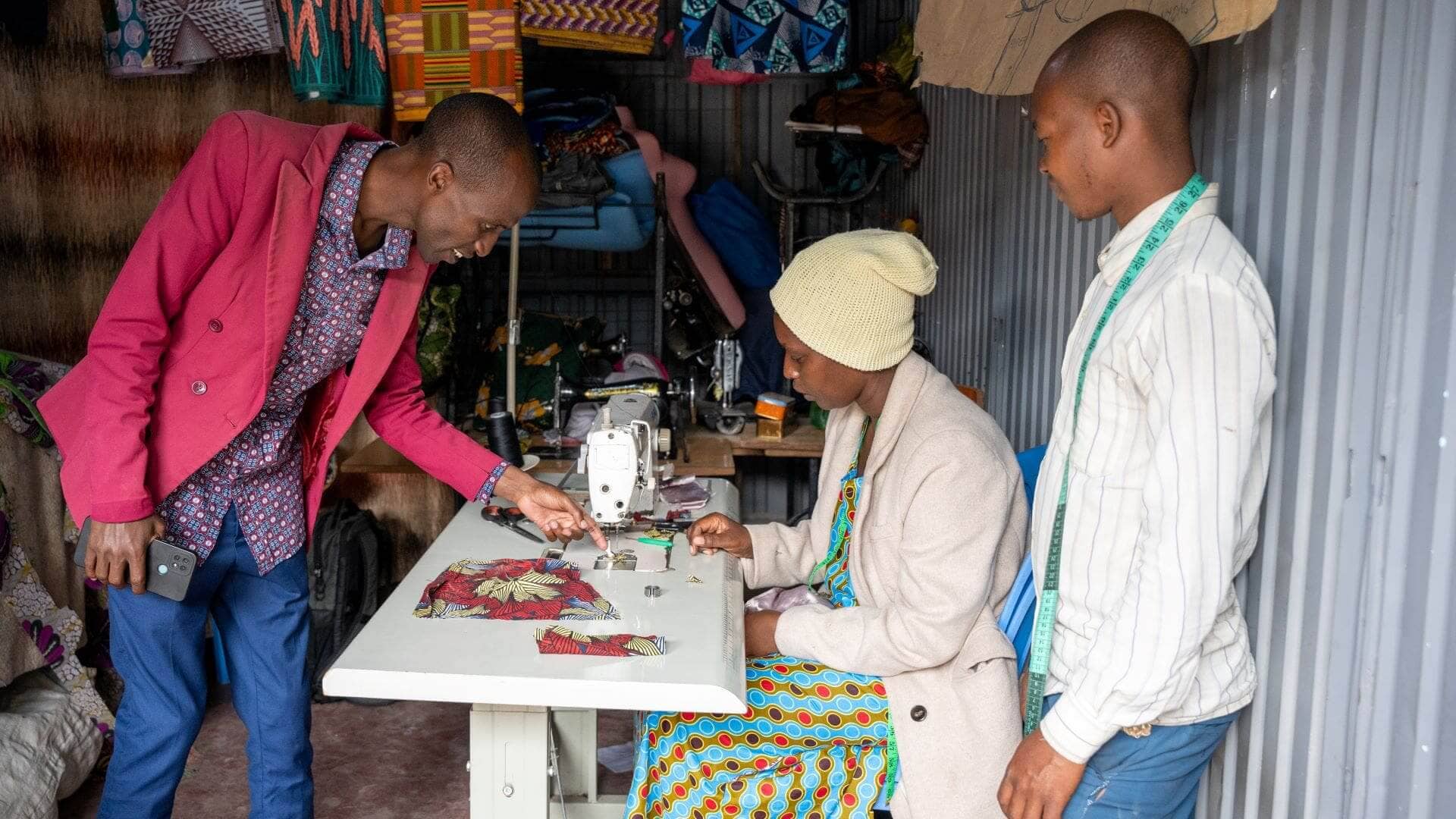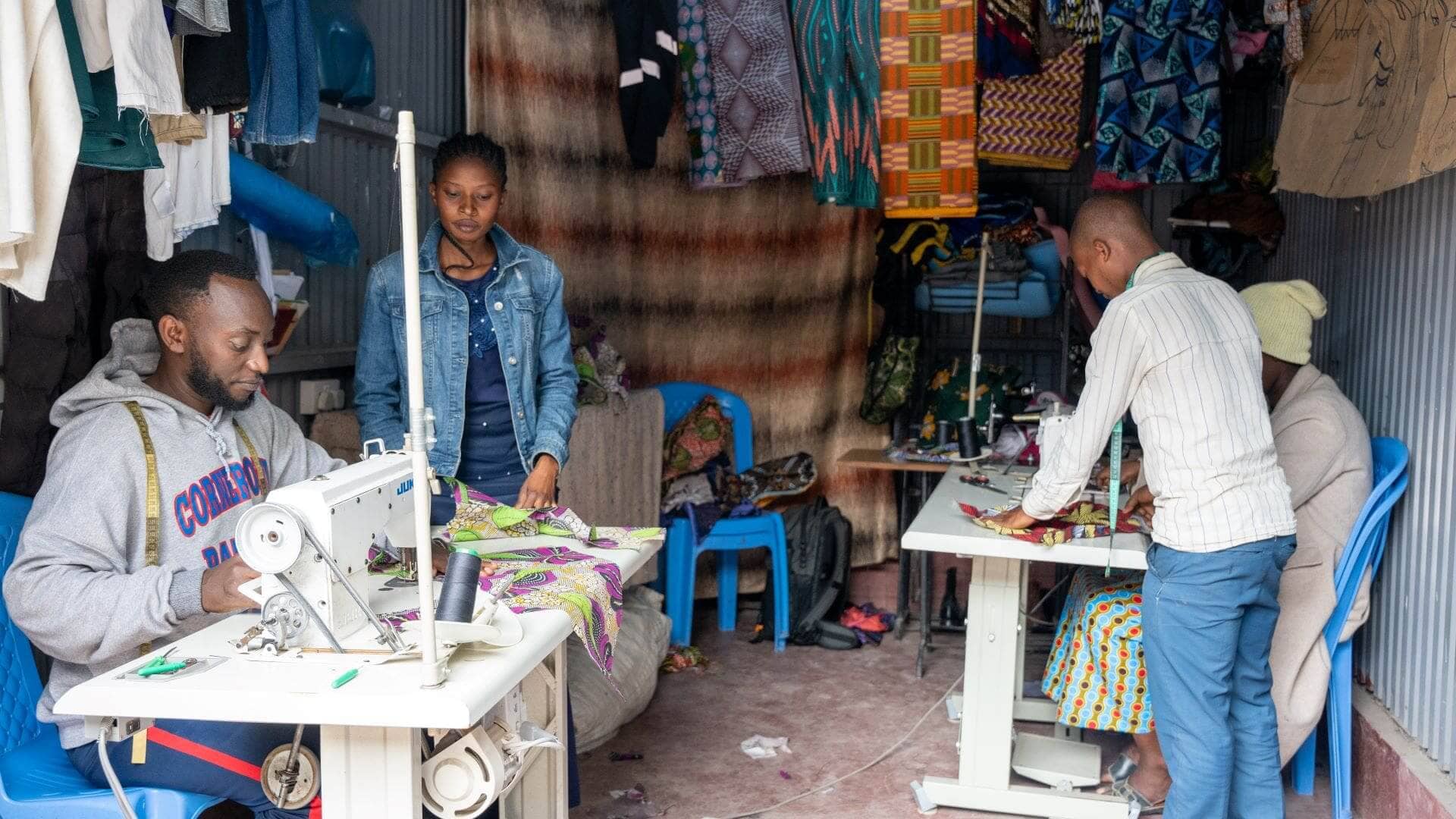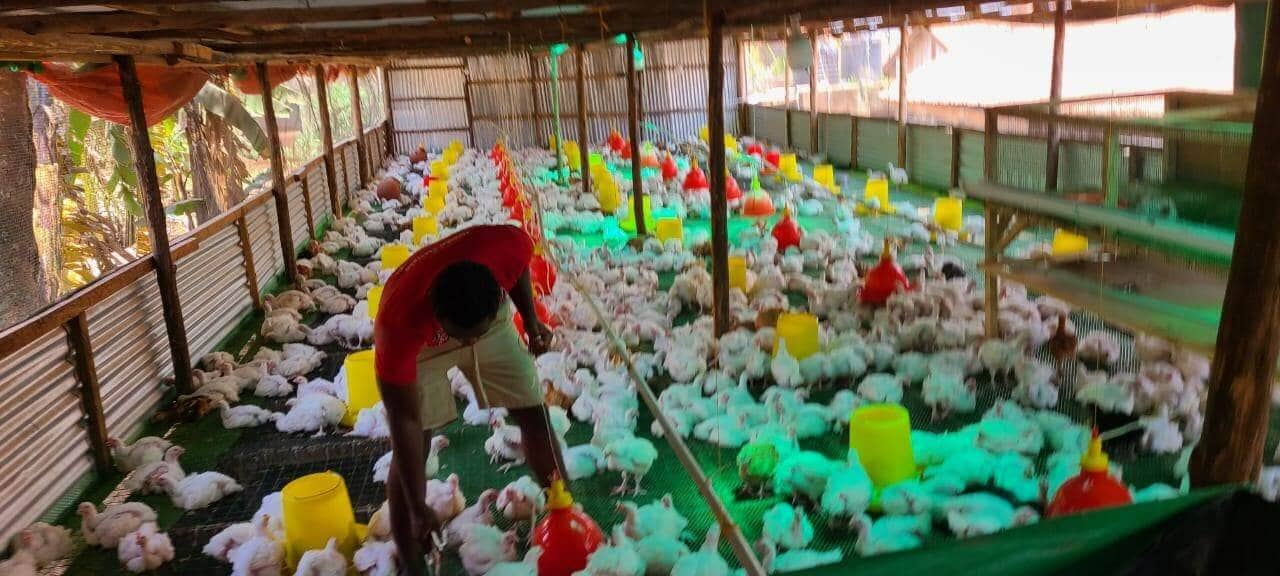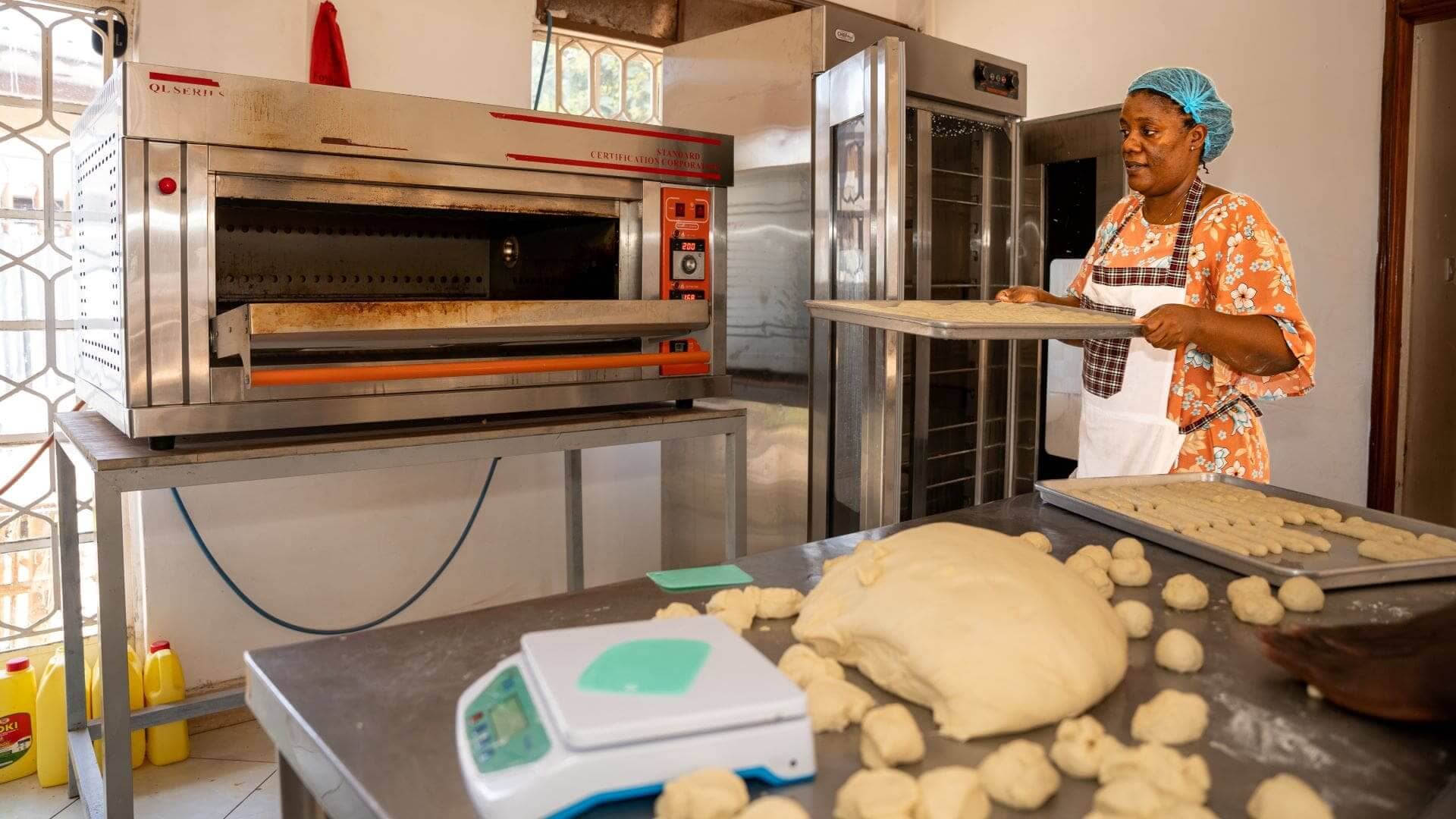Patrick Gisore gives hope to refugee widows through skilling, jobs
Patrick Gisore gives hope to refugee widows through skilling, jobs

Patrick Gisore assessing tailoring trainee Gentile Nyankema’s skills on a sewing machine during a session led by trainer Justine Vyukusenge (PHOTO: Nancy Mwangi for The IRC)
Patrick Gisore is a 36-year-old Congolese refugee living in Nairobi. When violence uprooted Gisore and his family from their home in the Democratic Republic of Congo (DRC), they were immediately hit with the challenges of starting over in a new country.
“When we came to Kenya, we were but foreigners. There were no documents issued and we faced challenges linked with living in this new place because we didn’t have people to support us,” Patrick said.
Patrick initially took odd jobs, first working as a security guard and then at a hotel so that he could provide for his family. He reveals that he had no experience in neither of the jobs.
“For most of these jobs we did, we didn’t have any knowledge. It’s just that we didn’t have much of a choice. You get to Kenya, you find work and you just do it. I took security and hotel jobs that I knew nothing about. However, by the end of three years I had mastered them. But I never felt it to be my passion.”
In the DRC, Patrick’s wife worked as a tailor, but didn’t have the space to continue her work in Kenya. When they learned about the IRC’s and the IKEA Foundation’s Re:BUiLD program that provides business-skills training, apprenticeships, and grants to entrepreneurs, they took the opportunity to not only help themselves, but the community around them too.
“When we met the IRC, they were looking for groups and at that time, we had groups of widows and vulnerable people. We were helping them with food and I would preach to them.”

Trainers conducting a tailoring session at Patrick Gisore's tailoring and training shop (PHOTO: Nancy Mwangi for The IRC)
The program connects participants to job opportunities in sustainable industries and helps them access financial services like banking and micro-loans. “We learned a lot about budgeting. We learned a lot about putting together proposals and saving. That knowledge of saving helped us a lot. You may find money, but you have issues saving.”
Since Patrick’s wife had experience working as a tailor, they started training others in their group how to sew. Soon, they were able to start their own small business and help others start their own as well. capital and machinery to produce in large quantities.
When we started the business, we couldn’t leave these widows behind because we had started with them. We said, ‘Let’s see how we’d elevate them too…’ and that’s what motivated me most strongly to organize the training—because I was doing my own business. But we resolved to bring those widows along with us and help them acquire knowledge.”
The business continues to grow, now with two permanent employees from Burundi and Rwanda. To stay connected with their trainees, Patrick set up a WhatsApp group, keeping them informed about new opportunities.
Their monthly income has grown from Ksh 16,000 to Ksh 25,000, and the individuals they’ve trained have also brought in customers, further boosting their earnings.
“Many have been helped by the training. Some have entered Export Processing Zones Authority (EPZ ) and others have opened their own business around the area. So, now, they can be their own boss because they’ve been trained. And those who are still learning, we believe they will be able to open their businesses too.”
Patrick has big plans for the future of their business, but first he needs to find a bigger space to grow. “We’re now thinking about having larger premises. Business and training are jammed into this tight space. We’ve had to limit attendance numbers. But in our vision, we want to bring all those people and have a bigger space. We need larger premises for those who didn’t find the space to be able to join in.”

